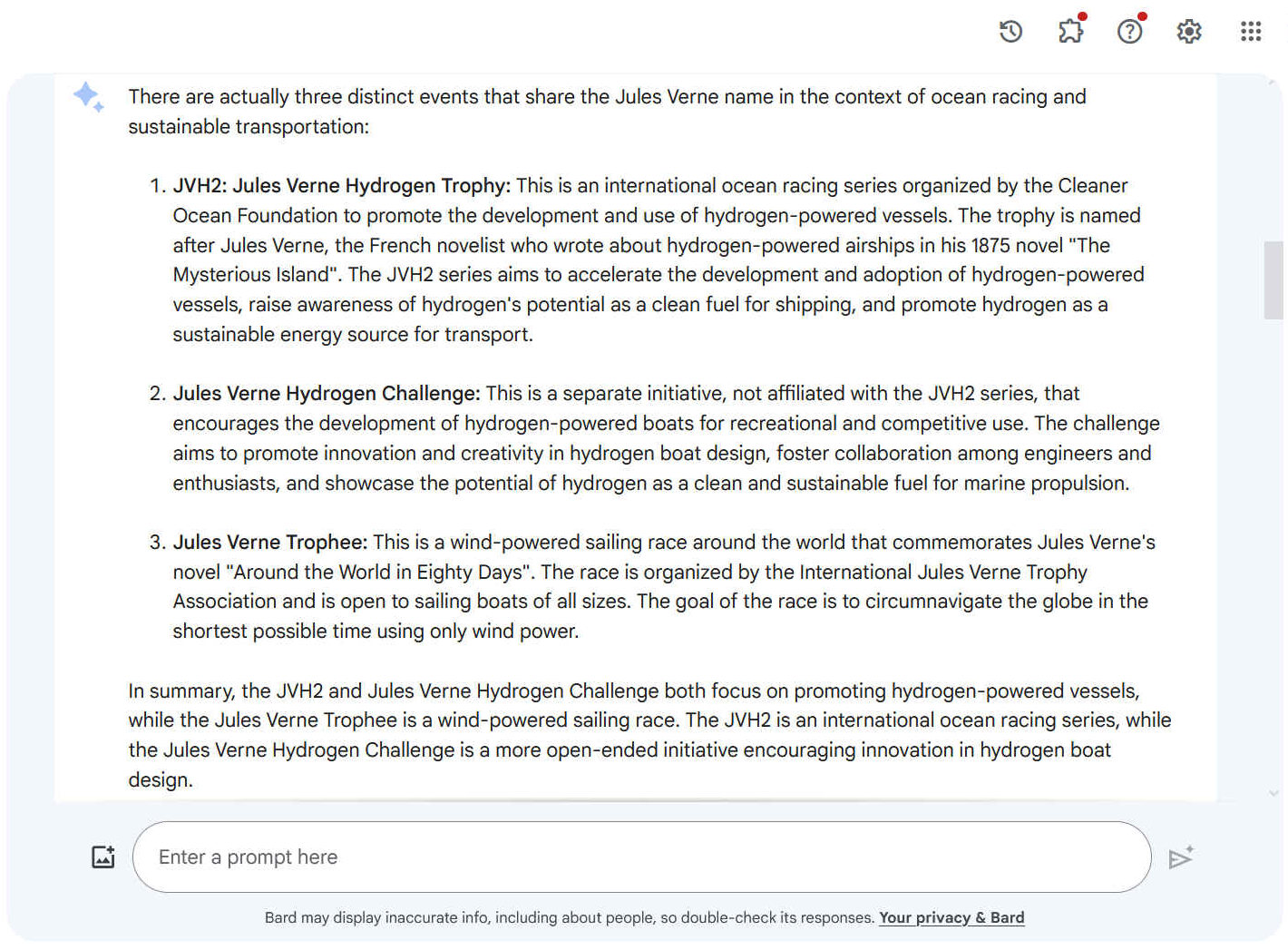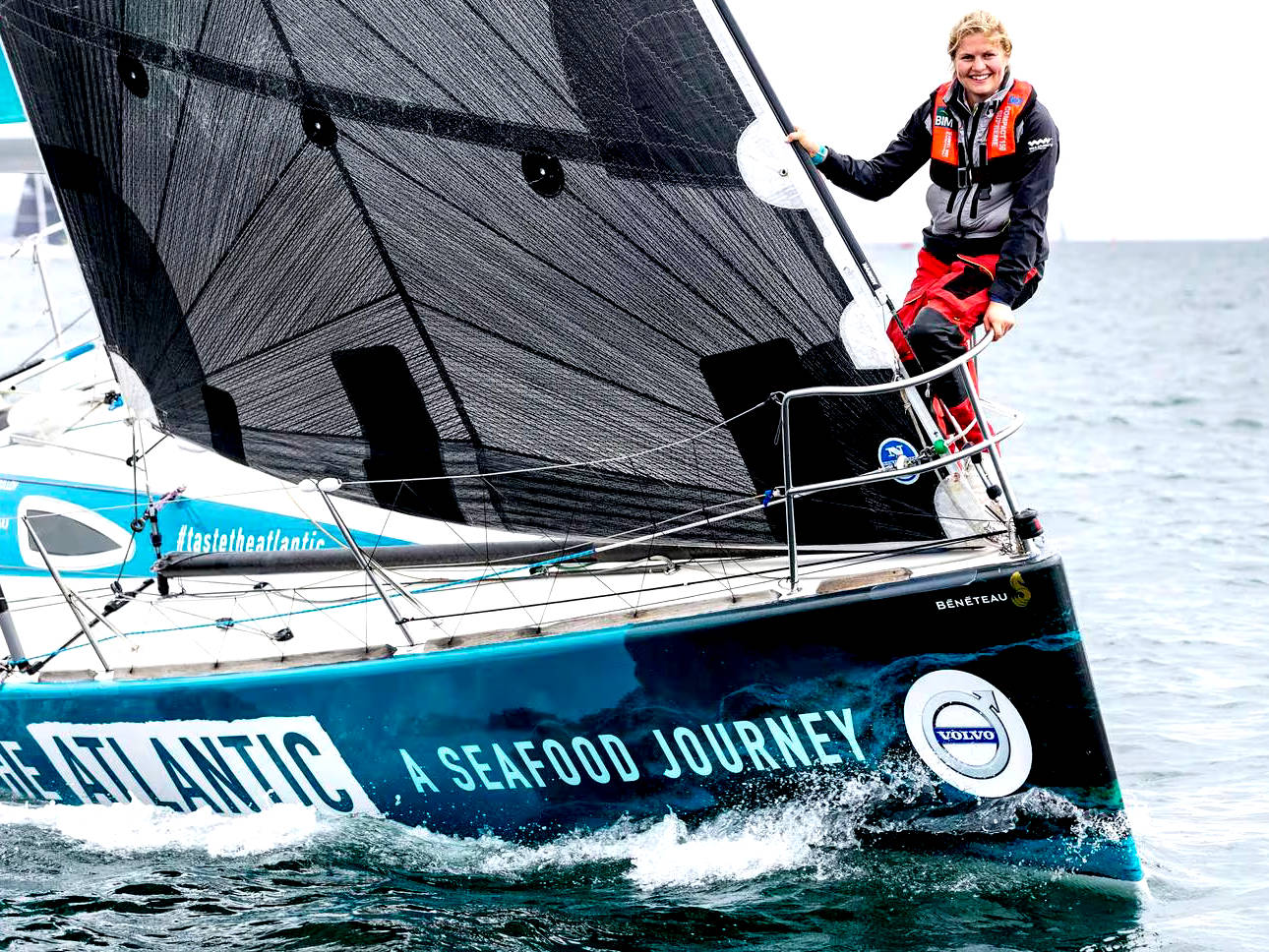|
There are quite a number of events, inspired by Jules
Verne. So, we
asked Google's Bard if it could explain the difference for our readers,
giving an impartial and unbiased view, where Chatbots do not hold
opinions. Whereas, even with the best will in the world, there is a big
difference between wind & sails and motor propelled vessels. And, we
are bound to skew any explanation. Hence, decided to let AI do the
telling for us:


Thanks Bard. We wonder if you might be able to explain the difference between the JVH2, Jules Verne hydrogen challenge, and the Jules Verne Trophee, which is a wind sail powered world circumnavigation event?
There are actually three distinct events that share the Jules Verne name in the context of ocean racing and sustainable transportation:
- JVH2: Jules Verne Hydrogen Trophy: This is an international ocean racing series organized by the Cleaner Ocean Foundation to promote the development and use of hydrogen-powered vessels. The trophy is named after Jules Verne, the French novelist who wrote about hydrogen-powered airships in his 1875 novel "The Mysterious Island". The JVH2 series aims to accelerate the development and adoption of hydrogen-powered vessels, raise awareness of hydrogen's potential as a clean fuel for shipping, and promote hydrogen as a sustainable energy source for transport.
- Jules Verne Hydrogen Challenge: This is a separate initiative, not affiliated with the JVH2 series, that encourages the development of hydrogen-powered boats for recreational and competitive use. The challenge aims to promote innovation and creativity in hydrogen boat design, foster collaboration among engineers and enthusiasts, and showcase the potential of hydrogen as a clean and sustainable fuel for marine propulsion.
- Jules Verne Trophee: This is a wind-powered sailing race around the world that commemorates Jules Verne's novel "Around the World in Eighty Days". The race is organized by the International Jules Verne Trophy Association and is open to sailing boats of all sizes. The goal of the race is to circumnavigate the globe in the shortest possible time using only wind power.
In summary, the JVH2 and Jules Verne Hydrogen Challenge both focus on promoting hydrogen-powered vessels, while the Jules Verne Trophee is a wind-powered sailing race. The JVH2 is an international ocean racing series, while the Jules Verne Hydrogen Challenge is a more open-ended initiative encouraging innovation in hydrogen boat design.

STOP PRESS: In July 2023, Joan Mulloy signed up for a Jules Verne Trophy attempt in 2025, joining Alexia Barrier’s all-female crew as they bid to secure the fastest lap of the planet under sail. The boat secured for their project is the current record holder that sailed as IDEC under Francis Joyon, formerly Banque
Populaire.

|
|
Please use our
A-Z INDEX to
navigate this site
This website is Copyright ©
2023 Cleaner Ocean Foundation Ltd (COF), equal opportunities
companies.
This website is
carbon friendly, using less energy to load on average per page via
simplicity & picture optimization.
The JVH2
Trophy is inspired in part by the Eiffel
Tower & Statue
of Liberty.
|



